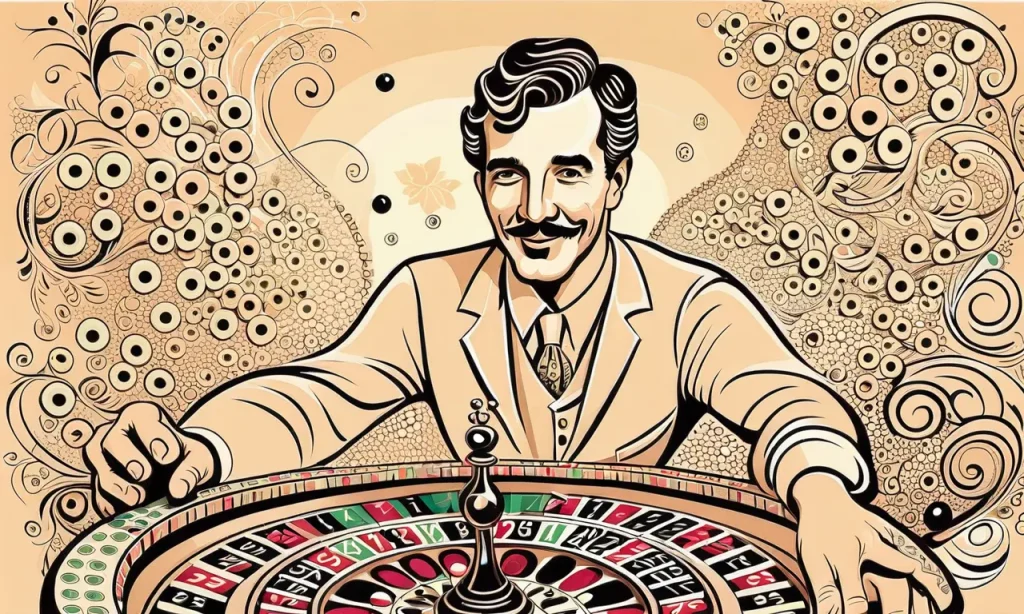
Craps game is a blend of chance, strategy, and skill, where a single roll of the dice can result in significant gains or losses. But… How did craps get its name?
The name ‘craps’ is as captivating as the game itself, sparking curiosity and leading many to question its origin and the history embedded within it. This curiosity is justified, as the name ‘craps’ holds a rich history that reflects the game’s evolution over time.
This article is designed to delve into the history of the craps game, with a special emphasis on the origin of its name. We will explore various theories surrounding its name’s origin, trace the journey of craps to America, discuss the evolution of the name, and examine the impact of the name on the game’s popularity.
The name ‘craps’ is as captivating as the game itself. Various theories attempt to explain its origin, each presenting compelling evidence and counterarguments.
One of the most widely accepted explanations for the name ‘craps’ is the French theory. This theory proposes that the name originates from the French term ‘crapaud’, translating to ‘toad’ in English.
The French term ‘crapaud’ is used to denote a toad. It is speculated that this term was employed to describe the initial posture of the players who would squat while playing the game on the streets, resembling a toad’s stance.
The association between ‘crapaud’ and craps is deeply rooted in the game’s original playing style. Players would squat, mimicking a toad, and toss the dice onto a blanket or a makeshift board. This led to the game being informally referred to as ‘crapaud’.
Despite the lack of concrete historical evidence supporting this theory, its plausible explanation has led to wide acceptance. Critics, however, contend that the term ‘crapaud’ was not prevalent in regions where the game gained popularity, casting doubt on this theory.
Read Also: When Was Craps Invented?
An alternative theory posits that the name ‘craps’ derives from the English term ‘craps’, used to denote a losing throw of dice in the game of hazard, the forerunner to modern craps.
In the game of hazard, ‘craps’ signified a dice throw resulting in a loss, synonymous with ‘bad luck’. This is somewhat ironic given the game’s heavy reliance on chance and luck.
The term ‘craps’ is linked to the game through its predecessor, hazard. As craps evolved from hazard, it is plausible that the term was carried over and eventually became the game’s name.
The English theory is supported by historical references to the game of hazard and the use of the term ‘craps’. Critics, however, argue that the term ‘craps’ was not extensively used in hazard, making this theory less probable.
There are numerous other theories regarding the origin of the name ‘craps’, including suggestions that it derives from the word ‘crab’, a term from old English dice games. However, these theories are more speculative and lack substantial evidence.
The true origin of the name ‘craps’ remains elusive. The various theories, however, offer intriguing insights into the game’s history and evolution. The ongoing debate over its origin continues to enhance the allure and intrigue of this popular dice game.
Read Also: What is a Craps Game?
The moniker ‘craps’ has significantly influenced the game’s perception, both positively and negatively. Its unique and slightly humorous undertone has made it memorable, thereby enhancing the game’s global recognition.
Simultaneously, the term ‘craps’ has been colloquially linked with failure or loss, which might have initially discouraged some potential players. Despite this, the game’s exhilarating nature and the prospect of significant winnings have largely eclipsed any negative connotations associated with the name.
The name ‘craps’ has proven to be a marketing windfall for casinos and gambling establishments. Its distinctiveness allows it to stand out in the saturated gambling games market, simplifying promotional efforts.
The name’s simplicity and its ease of pronunciation in various languages have further enhanced its marketing appeal. For instance, in Las Vegas, the catchy slogan “Shoot the Craps” has been effectively employed in advertising campaigns to lure both experienced gamblers and beginners to the craps tables.
Read Also: Craps Rules: Beginners Guide
The name ‘craps’ has significantly influenced the game’s popularity and dissemination. Its unique and catchy nature has undeniably boosted its recognition, making it one of the most frequently played casino games globally.
The name’s simplicity makes it easy to remember and identify, even for those unfamiliar with casino games. Moreover, the name ‘craps’ has become synonymous with the game, ensuring immediate recognition in casinos worldwide. This instant recognition has undoubtedly facilitated the game’s proliferation, as players are more inclined to try a game they recognize.
Read Also: 7 Best Craps Strategies In 2024
Our exploration of the origins and evolution of the game of craps has taken us on a journey through time and across continents. We have delved into the rudimentary forms of dice games, the inception and progression of craps, and the various theories surrounding the genesis of its name.
But let’s be realistic: it doesn’t matter How Craps Get Its Name. The history of all things in the world has different theories. The important thing is the popularity of games through eras that only grow!
The game came to be known as “craps” through a combination of influences, including French, British, and American slang. Over time, the name became associated with the game itself.
The exact origin of the term “craps” is unclear, but it likely emerged from the street slang of early American gambling culture. Its usage became widespread as the game gained popularity.
The name “craps” has become synonymous with the game of dice, representing its unique blend of chance, strategy, and social interaction. It has retained its historical charm while evolving with the times.
While “craps” is the most widely recognized term for the game, there may be variations in regional slang or dialects. However, the fundamental rules and gameplay remain consistent.
WE RECOMMEND
Related Reading